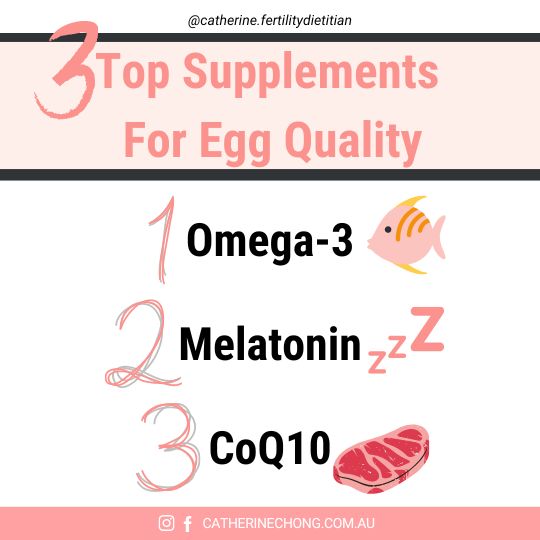CoQ10 Supplement for Fertility
When you’re on a fertility journey, you likely come across a myriad of supplements that promise support, from enhancing egg quality to improving ovarian function. Among these, CoQ10 (Coenzyme Q10) is a powerful, natural option gaining traction for its promising role in fertility support.
In this blog, we’ll explore how the CoQ10 supplement works for fertility, its benefits for both males and males and why it might be a valuable addition to your fertility plan.
What is CoQ10 and How Does it Support Fertility?
CoQ10 is a naturally occurring antioxidant in the body, vital for cell energy production. It’s particularly crucial for mitochondrial function—those tiny “powerhouses” in each cell—where it helps generate energy essential for cellular health.
This energy boost is significant for egg cells, which require high energy levels for maturation, fertilisation, and successful embryo development.
As we age, our body’s natural production of CoQ10 declines, which can impact egg health and overall fertility, particularly for women over 35. Supplementing with CoQ10 can help counter this decline, potentially boosting egg quality and mitochondrial function.
Foods High in CoQ10 and Dietary Sources
CoQ10 is naturally present in our bodies and can be found in certain foods, such as organ meats (e.g., liver), fatty fish (e.g., salmon and tuna), and whole grains.
When we’re younger, our bodies usually maintain sufficient levels of CoQ10 through a balanced diet and internal production. However, as we age or experience specific health conditions, our natural levels of CoQ10 begin to decline. This decline can leave our bodies more vulnerable to oxidative stress, impacting cellular health and fertility.

Understanding CoQ10 Absorption: Ubiquinone vs. Ubiquinol
CoQ10 exists in two forms – ubiquinone and ubiquinol. Absorption is complex, and the bioavailability of CoQ10 supplements can vary widely.
Historically, ubiquinol was believed to be the most absorbable form of CoQ10. However, recent research has stirred up discussions around the potential effectiveness of the standard ubiquinone form. It suggests that our body is capable of converting ubiquinone to ubiquinol.
Although there’s still much to learn, the evolving science of CoQ10 absorption is sparking new interest and exploration into optimising its benefits.
Benefits of CoQ10 for Egg Health and Ovarian Function
1. How CoQ10 Antioxidants Improve Egg Quality and IVF Success Rates
CoQ10 is known for its antioxidant properties, which protect eggs from oxidative stress and free radicals. Oxidative stress can damage egg cells, reducing their quality and viability. By protecting these cells, CoQ10 supports healthier eggs, which is particularly important in women with low ovarian reserve or those preparing for IVF.
In this randomised controlled trial involving 169 participants under age 35 with decreased ovarian reserve, 60-day CoQ10 pretreatment improved outcomes compared to the control group. Specifically, women receiving CoQ10 required lower gonadotropin doses, exhibited higher peak estrogen levels, and had more retrieved oocytes and high-quality embryos.
Additionally, fewer participants in the CoQ10 group experienced embryo transfer cancellations due to poor embryo development, and more had embryos available for cryopreservation. While clinical pregnancy and live birth rates were higher in the CoQ10 group, they did not reach statistical significance, suggesting that further studies are needed to explore CoQ10’s long-term impact on fertility outcomes.
2. Boosting Clinical Pregnancy Rates, Optimal Embryo Quality, and Oocyte Retrieval with CoQ10 Supplement
A recent meta-analysis of six randomised controlled trials involving 1,529 women with diminished ovarian reserve (DOR) undergoing IVF/ICSI revealed that CoQ10 pretreatment significantly enhances several reproductive outcomes. Findings indicated that CoQ10 supplementation was associated with increased clinical pregnancy rates and the number of high-quality embryos and retrieved oocytes. These promising results suggest CoQ10’s potential to improve IVF/ICSI success for women with DOR, though further research with more extensive, more rigorous studies is recommended to confirm these benefits fully.
3. CoQ10 Supplementation: A Promising Future for Idiopathic Male Infertility Treatments
One recent study evaluated the effects of 6-month CoQ10 supplementation (200 mg daily) on 178 men with idiopathic oligoasthenospermia (OA) compared to 84 fertile controls.
CoQ10 treatment significantly improved semen parameters and antioxidant levels and reduced sperm DNA fragmentation (SDF) with a pregnancy rate of 24.2% in men treated with CoQ10. CoQ10 therapy for 6 months could be a potential therapy for men with idiopathic OA and may enhance their fertility and pregnancy outcomes.
How Much CoQ10 Supplement Should I Take For Fertility?
Research suggests that an effective CoQ10 dosage for fertility support ranges from 300 mg to 1200 mg daily, ideally taken consistently for at least 3 months. However, individual needs can vary.
It’s essential to consult with a healthcare provider or fertility dietitian to determine the most appropriate dosage and ensure safe, personalised guidance for your fertility journey.
To learn more about fertility-boosting foods, read our previous blog post here.
The Bottom Line
- CoQ10 supports cellular health, improving egg and sperm quality for better fertility outcomes.
- Studies show CoQ10 can enhance clinical pregnancy rates and embryo quality, especially in IVF.
- Optimal CoQ10 intake varies. Consult a fertility dietitian to tailor your dosage for the best results.
